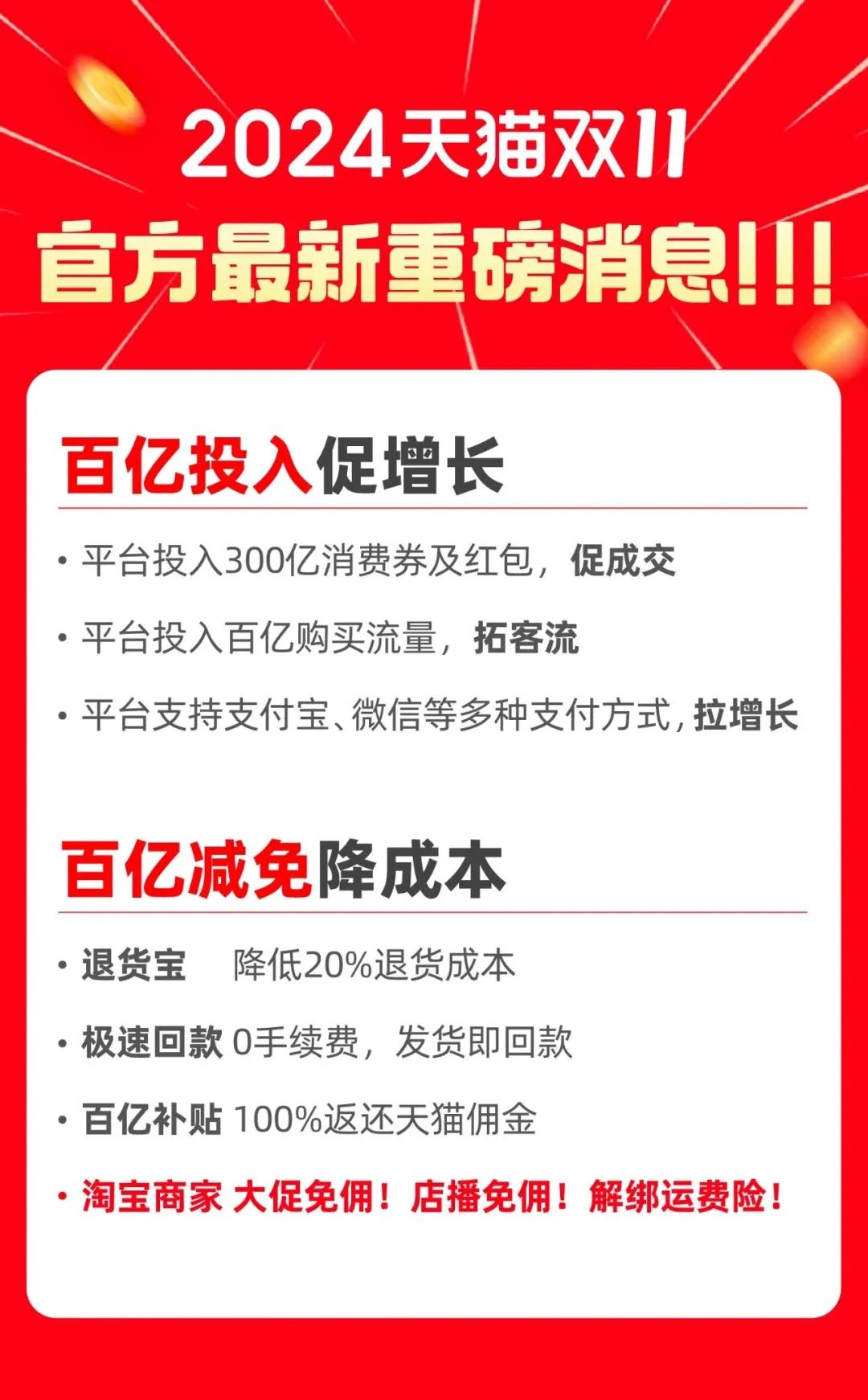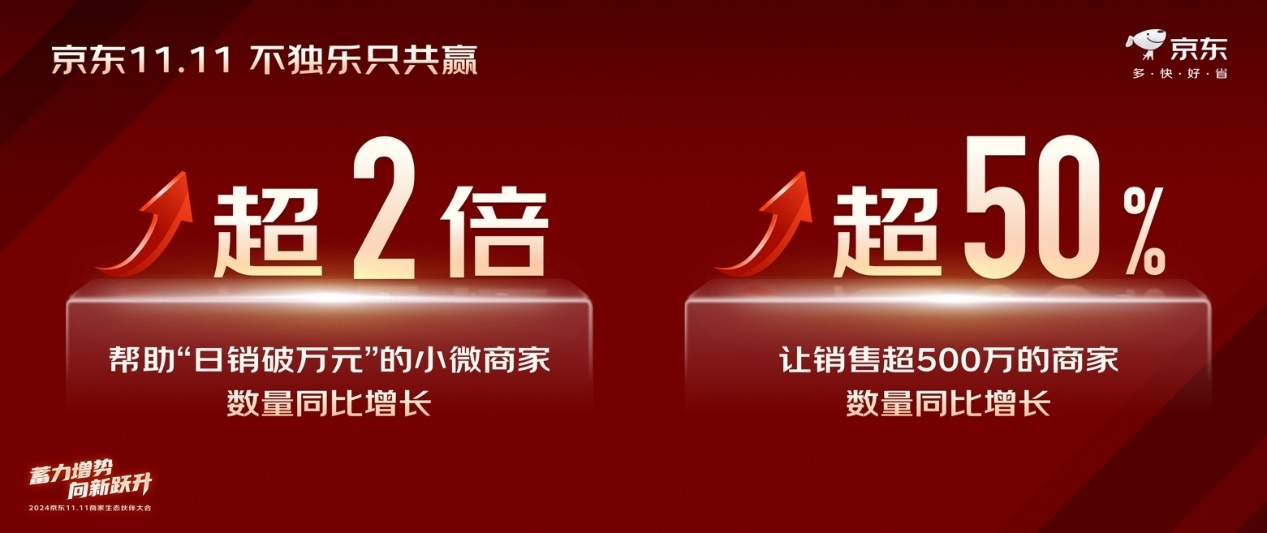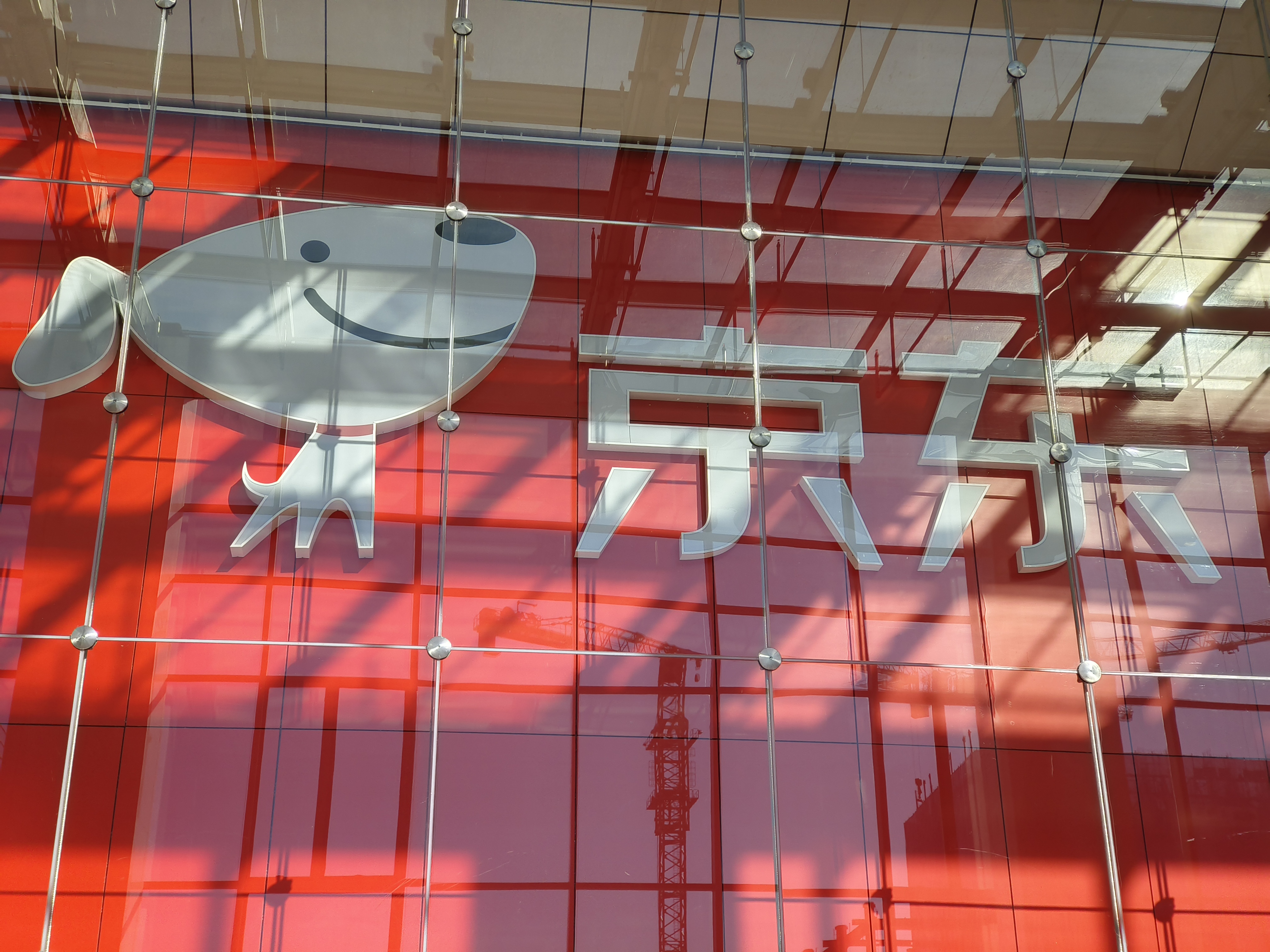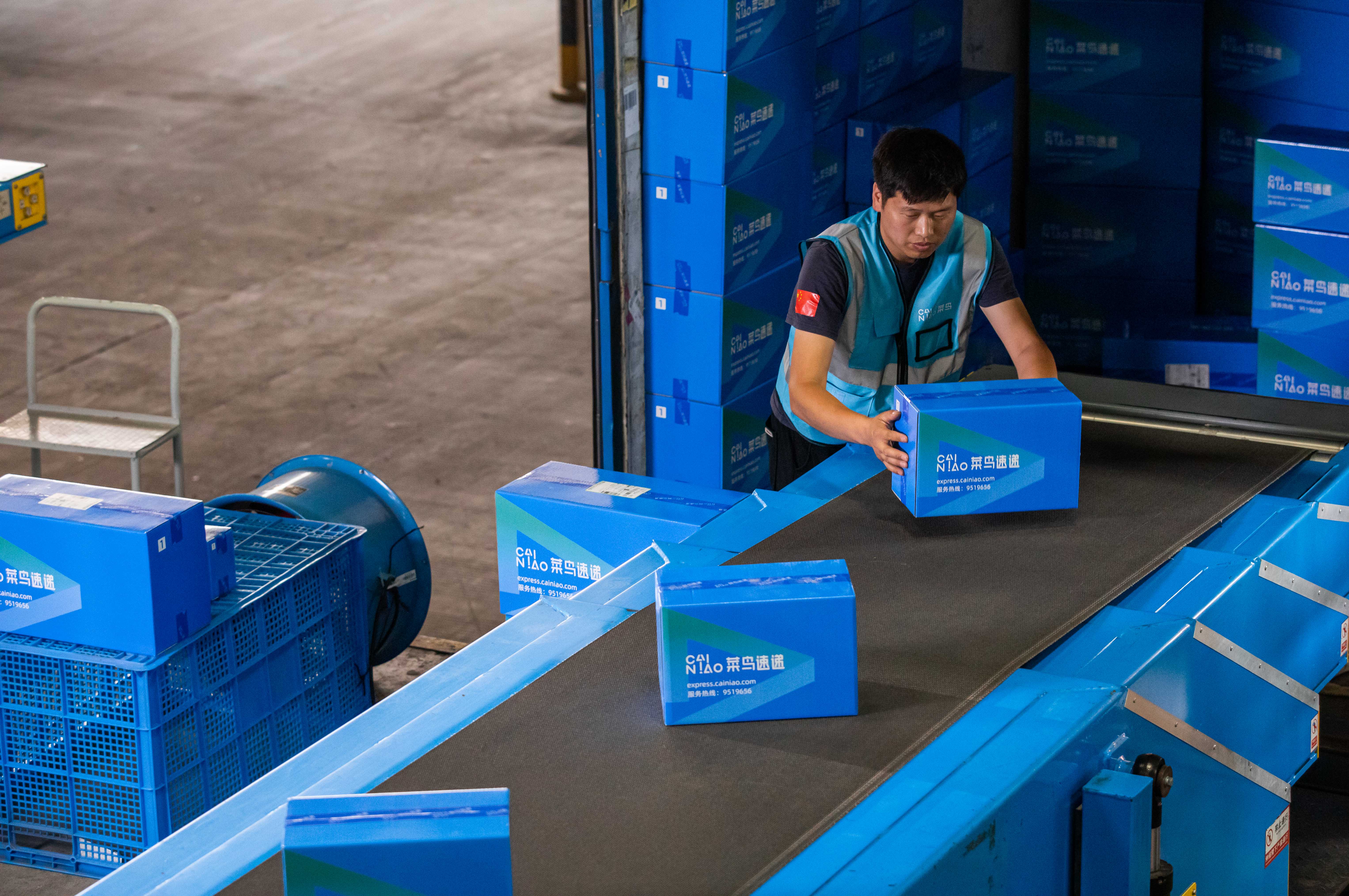Interoperability is finally here! The most open Double 11 in history is coming: not about price wars, but about merchants
![]() 09/30 2024
09/30 2024
![]() 560
560
This Double 11 is destined to be a true "watershed" moment.
In recent days, platforms such as JD.com, Tmall, Kuaishou, Bilibili, Douyin, and others have held their 2024 Double 11 Merchant Conferences. Although Xiaohongshu does not officially call it "Double 11" but rather "Annual Shopping Carnival", it effectively runs until November 11th.
With the announcement of plans for Double 11 by major platforms, it signals that the battle for this year's Double 11 has quietly begun. It is also evident that this year's Double 11 is starting earlier than usual.
According to JD.com's plan, its Double 11 will enter the pre-sale stage at 8 PM on October 17th, a week earlier than last year. Other platforms are even more aggressive:
- Tmall's Double 11 pre-sale starts on October 14th, ten days earlier than last year;
- Pinduoduo is no exception, starting its Double 11 activities a week early on October 14th at midnight;
- Douyin has advanced its Douyin Mall Double 11 Early Access Goods Festival to October 8th, seamlessly connecting with the National Day holiday;
- Kuaishou's Double 11 will enter the pre-heating phase on October 16th, with early access to good deals;
- Xiaohongshu, meanwhile, starts on October 12th.
However, November 11th remains the climax and final showdown of this Double 11 battle. As a result, with the collective advancement of Double 11 timelines, we are also witnessing potentially the longest Double 11 promotion ever, spanning nearly a month, with Douyin's promotion even extending over a month.
Beyond the early start, what other changes are there in this year's Double 11?
Price Wars Cooling Down, This Year's Double 11 Focuses on Merchants?
If last year's Double 11 saw e-commerce giants competing primarily on price, this year, while price remains important, the focus has shifted. There is a notable cooling off from emphasizing concepts like "lowest price across the web."
Even Pinduoduo, known for its low prices, only requires invited brand merchants to match prices within their competitive set during this Double 11, rather than across the entire web.
However, this does not mean that e-commerce platforms have stopped competing.

Image/Taobao Tianmao
First, Taobao Tianmao announced that it will invest tens of billions of yuan to support merchants' business growth through consumer coupons, red envelopes, traffic, and other resources. It will also reduce merchants' operating costs through return guarantees, fast refunds, and commission rebates.
JD.com also emphasized promoting the growth of small and medium-sized merchants. In addition to investing up to 1 billion yuan in live streaming, it is offering merchants free access to JD's digital avatar for 15 days and JD insurance services for returns and exchanges.
Pinduoduo is similarly offering subsidies and cost reductions through its "Billion Subsidy Program," including promotional service fees, technical service fees, and deposit refunds, to support new merchants.
Comparing the strategies of Taobao Tianmao, JD.com, and Pinduoduo for this year's Double 11, it is clear that these three major e-commerce companies have converged in shifting their subsidies from the consumer side to the supply side. They aim to tackle the three major challenges faced by e-commerce merchants: difficulty in acquiring traffic, high operating costs, and uncertain sales growth, through subsidies, traffic diversion, and cost reduction.
Furthermore, Taobao Tianmao and JD.com are also transforming the supply of white-label products. Taobao Factory has launched "Black Label Stores," while JD.com offers "Billion Subsidy for Factory Goods," both attracting more white-label merchants from Pinduoduo.
Regardless, it is expected that this year's Double 11 will see fierce competition among e-commerce platforms for merchants, which will impact the services and product offerings of merchants on each platform, ultimately affecting consumers' shopping experience.

Image/JD.com
Interoperability: The Most Open Double 11 in History
Upon closer inspection, the most significant change for consumers in this year's Double 11 may not be in the promotional rhythm or subsidies but rather in the interoperability among major platforms.
On September 12th, Taobao announced the addition of WeChat Pay capabilities, gradually opening it up to all sellers. By the end of September, according to Alibaba officials, Taobao had fully integrated WeChat Pay and officially launched it in the latest version of the app.
On September 26th, Alibaba and JD.com opened up to each other, with Taobao Tianmao expected to officially integrate JD Logistics in early October, and JD.com to integrate Cainiao Express and Cainiao Post. JD.com is also expected to integrate Alipay payments before Double 11.

Image/Leikeji
There is a noticeable trend towards greater interoperability and openness among e-commerce platforms, particularly between Tencent and Alibaba. This may be due to changes in the competitive landscape brought about by the entry of more e-commerce players in recent years or a desire to retain users with more comprehensive services.
With the integration of payment systems, Taobao users can now choose between Alipay and WeChat Pay when making purchases. Similarly, Alipay will be integrated into JD.com before Double 11, allowing JD.com users to finally use Alipay.
This breaks down the long-standing direct competition between Alipay and WeChat Pay. For consumers, the simplified payment process undoubtedly enhances the shopping experience. For Taobao, integrating WeChat Pay can attract a wider range of consumers, especially those in lower-tier cities and rural areas.
For JD.com, integrating Alipay not only enhances the user experience but also covers a larger user base. During Double 11, this integration can help distribute payment traffic away from WeChat Pay, reducing the risk of payment system crashes or delays.
Furthermore, breaking down logistics barriers improves delivery efficiency and meets the diverse needs of consumers. Most importantly, this interoperability enhances the overall shopping experience for users and promotes further optimization in the logistics industry.

Image/Cainiao
In summary, interoperability not only reduces "ecological barriers" for users during shopping but also brings new growth opportunities for platforms. For consumers, whether it's increased payment options or improved logistics services, the Double 11 shopping experience will be more convenient and diverse.
Behind this interoperability lies the "resource integration" among e-commerce platforms. Amid declining traffic dividends, e-commerce platforms face pressure to grow their user base and market share. Through interoperability, platforms like Alipay, WeChat, Taobao Tianmao, and JD.com can share infrastructure resources like logistics and payments, reducing duplicative costs and improving supply chain efficiency.
Recall that Double 11 used to be a hotbed of platform exclusivity and even "closed ecosystems." The long-running debate between Alibaba and JD.com over "either-or" clauses often peaked during Double 11. This year's Double 11, being the most open one in history, will undoubtedly mark a watershed moment for China's e-commerce and even the broader internet industry.
Closing Thoughts
In recent years, the complexity of Double 11 promotions and declining consumer enthusiasm have been points of contention for many merchants and users. Complex discount rules and cumbersome conditions have exhausted rational consumers, while merchants have found that Double 11's impact on annual sales seems diminished.
Despite these challenges, Double 11 remains one of the most important annual promotional events. Major platforms have recognized these issues and are not only increasing discounts but also simplifying promotions, enhancing user experiences, and alleviating marketing burdens and costs for merchants through subsidies and traffic support.
For brands, Double 11 remains an opportunity not to be missed. It's not just a promotional event but also a crucial moment for brand building and acquiring new users. Especially for emerging brands and small-to-medium merchants, Double 11 offers a golden opportunity to quickly boost sales and expand brand awareness. Through Double 11, brands can acquire a large number of new users and leverage new channels like live streaming e-commerce for precision marketing, improving conversion rates.
Undoubtedly, both consumers and merchants have become more rational about Double 11, but the optimization strategies of various platforms undoubtedly make this year's Double 11 full of possibilities. It remains to be seen which brands and platforms will emerge victorious in this promotional battle, making it an exciting time to watch.
Source: Leikeji








